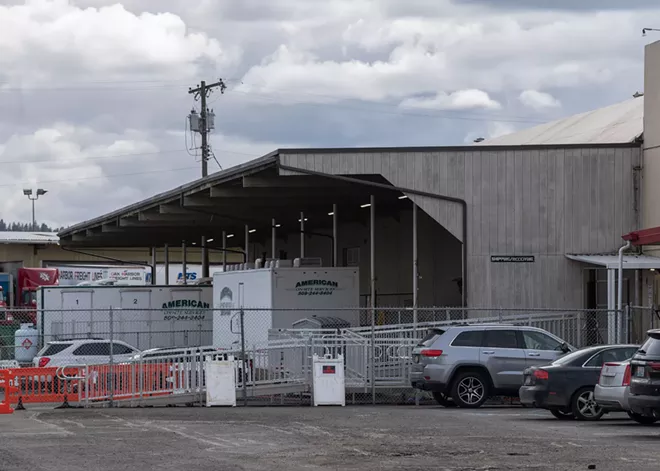
Spokane was once known for its affordability. People moved here seeking a lower cost of living and the dream of homeownership. But like many communities across the country, Spokane has seen a sharp rise in housing costs and a growing homelessness crisis in recent years.
For too long, response to this complex and intertwined challenge was fragmented. Without a comprehensive plan, piecemeal efforts addressed symptoms, never root causes.
That is changing.
My administration recently announced H.O.M.E. Starts Here, a strategic plan rooted in four pillars: health care, outreach, multidisciplinary engagement and economic security. These pillars form the foundation of our "all of the above approach" to preventing and ending homelessness.
This approach acknowledges that no single solution can address a problem as multifaceted as homelessness. H.O.M.E. Starts Here not only outlines our priorities but guides how every city department contributes to housing stability. It allows us to go further upstream — identifying root causes, investing in long-term solutions and deploying our limited resources in smarter, more effective ways.
This plan also establishes clear indicators of success, including reducing the number of cost-burdened households, increasing median household income and adding housing units across all income levels.
We have a strong framework for moving forward, and over the past year and a half we've launched a number of major initiatives to advance this vision.
In 2024 alone, housing and homelessness programs supported by the City of Spokane served more than 7,200 people. While many associate our efforts solely with shelter, a significant focus has been on prevention. We help people stay housed through eviction prevention, rent subsidies and housing support for youth aging out of foster care.
These programs are critical to keeping individuals and families from falling into homelessness. But for those who do lose housing, we work to ensure shelter is available, particularly during dangerous weather, and that the shelter system itself better serves those who rely on it.
During my first week as mayor, Spokane was hit by a severe cold snap. Despite freezing temperatures being a predictable event, there was no established plan to protect our most vulnerable. I immediately declared an emergency to allocate resources and open emergency beds to save lives.
That experience underscored the need for a more sustainable, proactive approach. Since then, we've overhauled our inclement weather response. Instead of scrambling to open new spaces and hire staff each time the weather turns dangerous, we now activate additional beds at existing shelters using existing staff — making the process faster, more efficient and far more cost-effective. With the support of the City Council, I advocated to triple our inclement weather funding to ensure we are ready to meet these needs every year and that beds are ready when we need them.
In addition to improving emergency response, we've fundamentally transformed how the city engages with those experiencing homelessness and how we provide shelter. Members of my team turned pre-existing relationships with nonprofits, other local municipalities and state agencies into solid partnerships.
We now coordinate funds and measure regional trends through a data dashboard with Spokane County, the City of Spokane Valley, and the Spokane Regional Health District. We've closed six (soon to be seven) encampments through our relationship with the Department of Commerce and their Encampment Resolution Program, which has an 80 percent success rate in navigating people to housing stability.
"...we've fundamentally transformed how the city engages with those experiencing homelessness...."
We've moved away from the outdated Trent Resource and Assistance Center model, which warehoused large numbers of people without adequate services and had a less than 10 percent success rate in moving people out of shelter. And we have adopted a new model focused on referring individuals through a navigation center to smaller, specialized shelter sites.
This new model is based on best practices from other communities and emphasizes intensive case management and population-specific support. Our sites serve a variety of populations, including people in recovery, families and those who need medical respite care. Each site serves just 20 to 30 people, which provides a more dignified, tailored experience that leads to greater success. Through partnerships with faith communities, hospital systems like Providence and nonprofits, we've been able to tap into existing infrastructure and deliver services through both subject-matter experts and individuals with lived experience.
Still, we know that shelter alone is not the solution. Reducing barriers and giving people the opportunity to reengage is critical in providing stability. This is why the City of Spokane "banned the address" and now partners with the Pre-Employment Preparation Program and Dignified Workday to provide paths to employment for those ready to work.
While stable employment is a key factor in helping people regain independence, it must be paired with access to a safe, affordable place to live. The ultimate goal must be housing, and we must build more of it.
Spokane has taken bold steps to reform zoning and housing policies. We've streamlined our permitting processes, which last year led to a record number of housing permits issued. We've expanded incentives to convert underutilized office space to housing, and we've encouraged existing homeowners to be part of the solution by allowing accessory dwelling units on all residential lots. We're laying the foundation for more housing choices that lead to better affordability. Spokane is emerging as a national leader in housing reform, and we're already starting to see the benefits.
This moment demands a coordinated, sustained response that cuts across agencies, political lines and sectors. Homelessness is not one problem, it's many. Solving it requires all of us working together to address the full spectrum of challenges.
H.O.M.E. Starts Here gives us the roadmap. Now, we keep moving forward. ♦
Lisa Brown is the mayor of Spokane. She previously served as the director of the Washington State Department of Commerce (2019-23), as majority leader of the Washington State Senate (2005-12), and taught economics at Eastern Washington State University (1981-2001).
